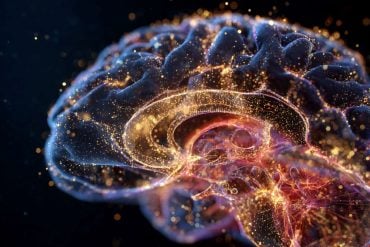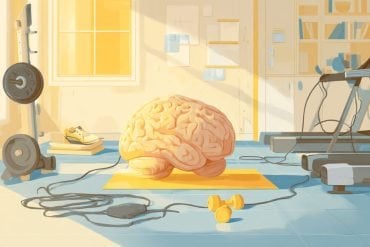Summary: Creatine is well known for its role in muscle energy, but it’s also critical for brain function and development. In people with creatine deficiency disorders, supplements often fail to improve neurodevelopment because the brain’s protective barrier blocks access.
Researchers are developing a novel technique to deliver creatine directly to the brain, bypassing this barrier to restore normal brain function. Early work shows promise in improving brain health in conditions that currently leave many with lifelong cognitive challenges.
Key Facts
- Brain Role of Creatine: Creatine is essential for energy production in brain cells and supports functions like memory, learning, and seizure control.
- Deficiency Impact: People with creatine deficiencies often improve muscle mass with supplements but continue to struggle with severe neurodevelopmental impairments.
- Innovative Delivery: A targeted method is being tested to deliver creatine directly to the brain, overcoming the natural barriers that prevent supplementation from working effectively.
Source: Virginia Tech
Creatine is popularly known as a muscle-building supplement, but its influence on human muscle function can be a matter of life or death.
“Creatine is very crucial for energy-consuming cells in skeletal muscle throughout the body, but also in the brain and in the heart,” said Chin-Yi Chen, a research scientist at Virginia Tech’s Fralin Biomedical Research Institute at VTC.

Chen is part of a research team working to develop a technique that uses focused ultrasound to deliver creatine directly to the brain. The work, being conducted in the lab of Fralin Biomedical Research Institute Assistant Professor Cheng-Chia “Fred” Wu, will be supported by a $30,000 grant from the Association for Creatine Deficiencies.
Creatine plays a vital role in the brain, where it interacts with phosphoric acid to help create adenosine triphosphate, a molecule essential for energy production in living cells. In addition to its role in energy production, creatine also influences neurotransmitter systems.
For example, creatine influences the brain’s major inhibitory pathways that use the neurotransmitter gamma-aminobutyric acid, which limits neuronal excitability in the central nervous system. It may play a role in a variety of functions, including seizure control, learning, memory, and brain development.
A growing body of research suggests that creatine may itself function as neurotransmitter, as it is delivered to neurons from glial cells in the brain and can influence signaling processes between other neurons. While creatine deficiency disorders can weaken the skeletal muscle and the heart, they can also severely affect the brain.
Many patients see increased muscle mass and body weight with creatine supplements, but they often continue to face neurodevelopmental challenges that can hinder their ability to speak, read, or write.
This is largely caused by the brain’s protective blood-brain barrier. This selective shield blocks harmful substances like toxins and pathogens from entering brain tissue, but it can also prevent beneficial compounds like creatine from reaching the brain when levels are low.
Wu studies therapeutic focused ultrasound, which precisely directs sound waves to areas of the brain to which access has been opened temporarily. The process allows drugs to reach diseased tissue without harming surrounding healthy cells. While Wu is investigating this method as a potential treatment for pediatric brain cancer, he also sees potential in applying it to creatine deficiency.
“Through the partnership between Virginia Tech and Children’s National Hospital, I was able to present our work in focused ultrasound at the Children’s National Research & Innovation Campus,” Wu said.
“There, I met Dr. Seth Berger, a medical geneticist, who introduced me to creatine transporter deficiency. Together, we saw the promise that focused ultrasound had to offer.”
The Focused Ultrasound Foundation has recognized Virginia Tech and Children’s National as Centers of Excellence. Wu said the two organizations bring together clinical specialists, trial experts, and research scientists who can design experiments that could inform future clinical trials.
“It was a moment that made me really excited — that I had found a lab where I could move from basic research to something that could help patients,” Chen said.
“When Fred asked me, ‘Are you interested in this project?’ I said, ‘Yes, of course.’”
Because creatine deficiencies can impair brain development, the early stages of Chen’s project will concentrate on using focused ultrasound to deliver creatine across the blood-brain barrier. Chen hopes the technique will restore normal brain mass in models of creatine deficiency.
About this neuroscience research news
Author: Leigh Anne Kelley
Source: Virginia Tech
Contact: Leigh Anne Kelley – Virginia Tech
Image: The image is credited to Neuroscience News






